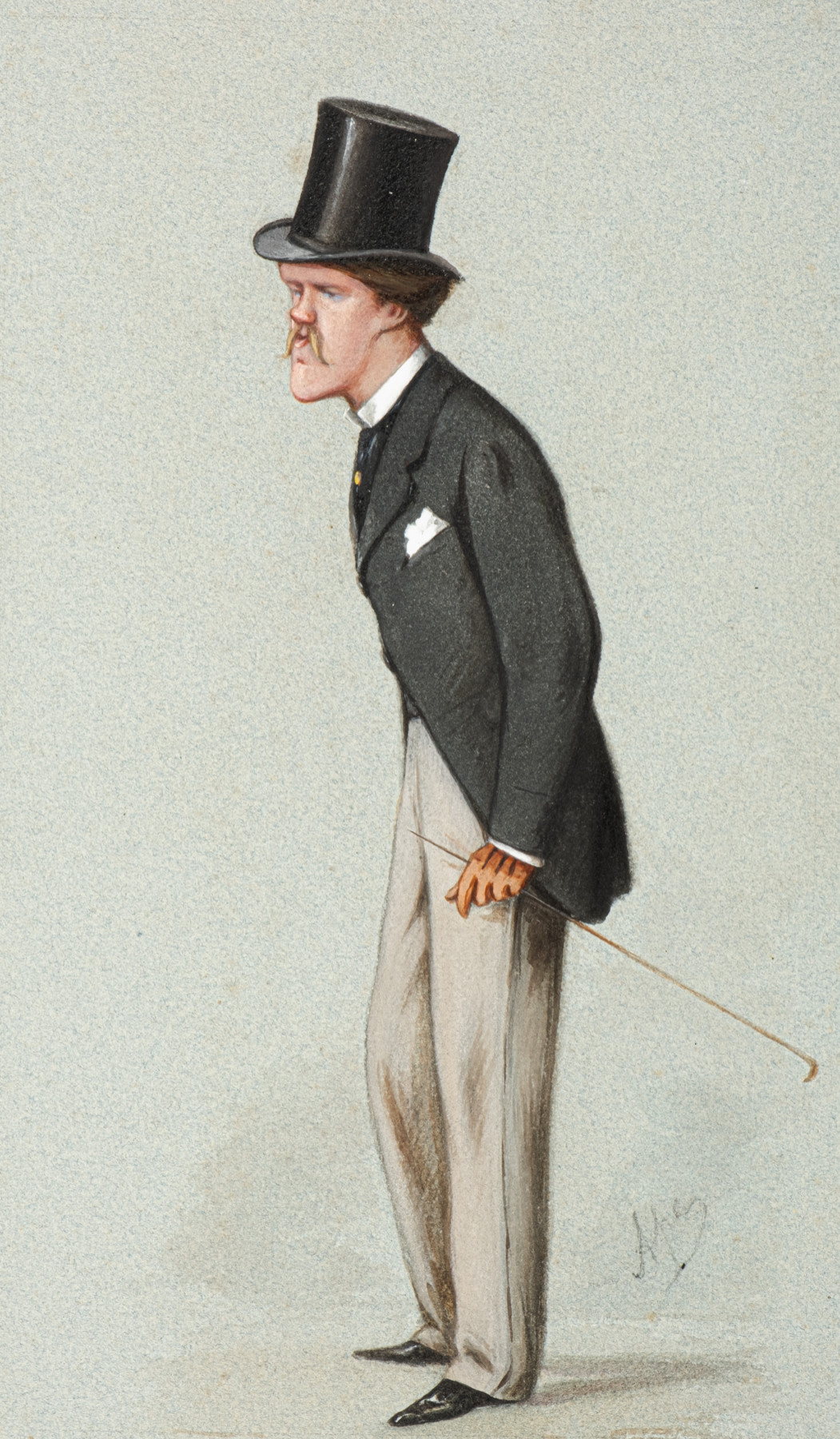
(click image to enlarge)
William Ulick O'Connor Cuffe (1845-1898), who succeeded to the title of 4th Earl of Desart at the age of 20, was an author of short stories and mystery thrillers who wrote fifteen novels across his career. His novels included 'Beyond These Voices' (1870), 'The Raid of the "Detrimental" (1897) and 'Love and Pride on an Iceberg: and Other Tales' (1887).
“The elder son of a poor titled Irish Family does not always find it an easy thing to make any great practical use of his ancestors; and, as often as not, has to rely upon himself more than upon his nobility to gain success of any kind in life. Lord Desart's family connections were nevertheless of some service to him, for at eleven years of age they made him page of honour to the Queen, in which capacity he distinguished himself according to his years by some escapades calculated to shock those who believe in the personal sanctity of Royalty. At seventeen, his domestic service at Court procured for him the usual reward of a Commission in the Guards, and he was so fortunate as to be sent almost immediately upon service more active than that of Windsor and London, for in the following year, he accompanied the Coldstreams to Canada. While there he sleighed, sported, and muffined, much to his own satisfaction, and he further distinguished himself and his regiment in the streets of Montreal by getting up the biggest fight with the police ever known. With two other peers and guardsmen at his side, he maintained on this occasion a Homeric struggle until overpowered by numbers and beaten into insensibility. Subsequently he returned to England, hunted for three seasons, married a young lady from Yorkshire, sent a challenge which was declined, and then went to live in his native wilds of Kilkenny. Finding there no other chance of a shindy, he took up the obstinate Father O'Keeffe and attended Magistrates' meetings. Then he began to cultivate Literature and the Drama. He twice appeared as a distinguished amateur on the boards in London, the editors of magazines began to know his fist, and two indifferent novels testified to the industry with which he kept it going. Still, life at Kilkenny, even when tempered with a half-season visit to London, is rather dull, and its dullness suggested to Lord Desart the conviction that the time had arrived for getting up a more striking shindy than any he had yet enjoyed. Wherefore he assumed the responsibility for ‘the Chesterfield Letters of 1873,’ written nobody knows by whom - unless indeed it were by Father O'Keeffe. It being fortunately a dull season, ‘all London’ became excited at finding some notorious impostures and swindles visited with satire and exemplified in certain fictitious characters, which were declared only thinly to disguise real individuals. Everybody said that ‘something must be done,’ and there seemed the most brilliant and certain prospect of a really good row. It ended however in the immortal journey of the three Colonels to Kilkenny, in order to demand not satisfaction by murderous arms, but Declaration in murdered English. They obtained, explained, and commented upon it in a manner which some persons thought proper, and thus deprived Lord Desart of all chance of immortalising either himself or any other person on Boulogne Sands.
Lord Desart is a great reader who has acquired a considerable knowledge of literature, a ready writer, and an energetic man, not disposed to echo the commonplaces or to agree with the common companions of Society. He will probably soon be a representative Irish Peer in the British Parliament, and in spite of his mere one-and-thirty years, he is likely to import into that august assembly a liveliness of debate and a novelty of ideas which will do it no harm.”